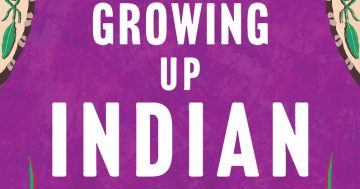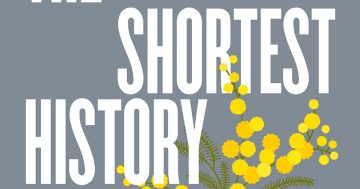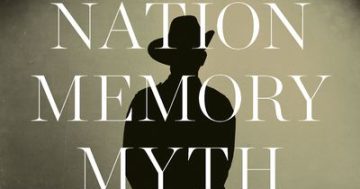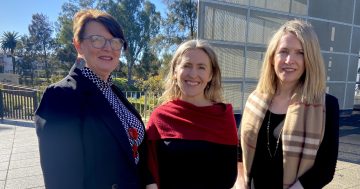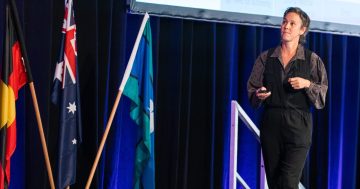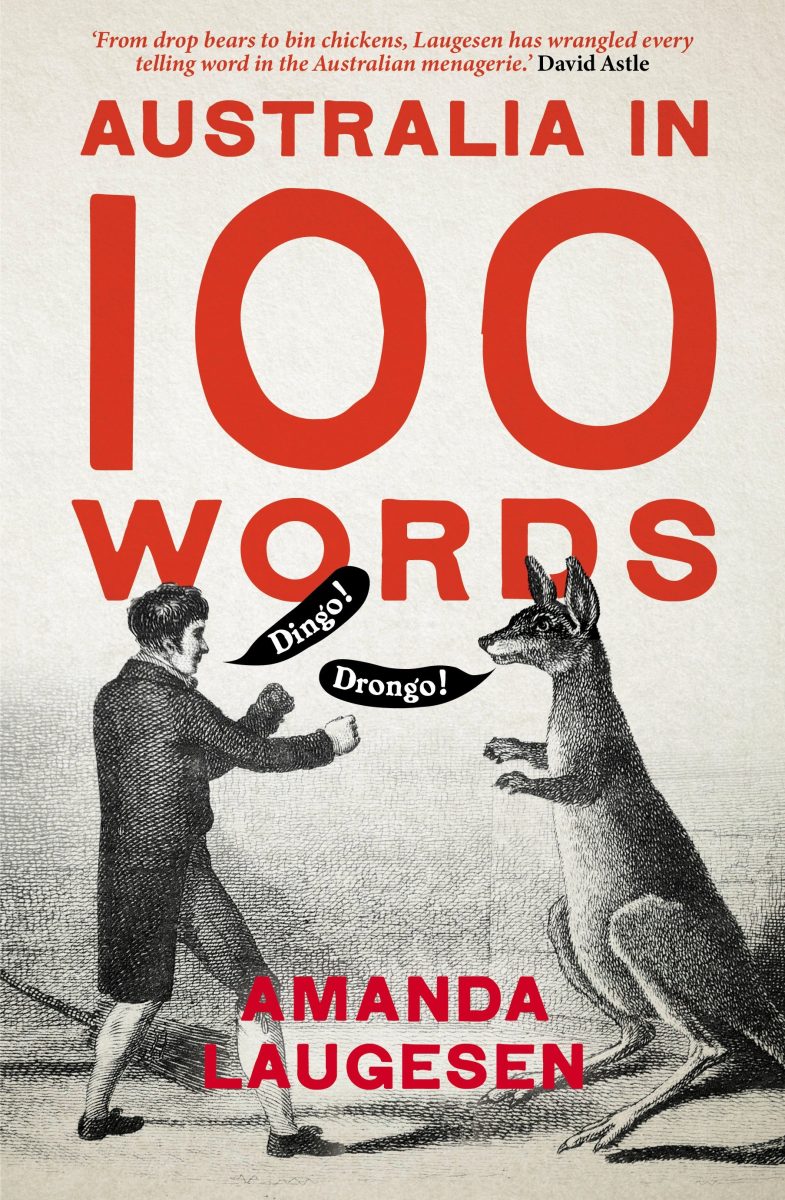
Australia in 100 Words reveals some of the ideas, events and values that have shaped Australia’s history by providing a fascinating insight into the evolution of Australian English. Photo: Supplied.
Moving chronologically through Australian history and social development, Australia in 100 Words uses iconic Australianisms to paint a vivid picture of the nation’s cultural evolution. This exceptional work takes us on a captivating, innovative linguistic journey.
Using 100 key words and phrases to tell the story of Australia is no mean feat, requiring considerable effort, skill and determination.
As chief editor of the Australian National Dictionary: Australian words and their origins, Amanda Laugesen is in a unique position, being more than qualified to meet this challenge.
“But settling on 100 words and expressions to tell the story of a nation is no easy task, as I can attest after having done it myself for this book,” Laugesen writes.
“A selection of these words can provide us with a unique way to tell a story of Australia – or perhaps more accurately, stories of Australia. The history of particular words can highlight Australia’s positive aspects as well as its darker underside. For every fair go, Australians condemn those who are unAustralian; for every celebrated larrikin, they have piled on to the bludgers and the wowsers.
“Words have been and continue to be powerful in shaping Australians’ sense of themselves. They underpin the myths of Australian identity and have shaped Australian values. But they have also sometimes obscured the harsher realities and inequalities of Australian life.”
The 100 words and expressions used are the personal choices of the director of the Australian National Dictionary Centre at the Australian National University. In fact, they are based on Laugesen’s many years of researching Australian words and history.
“Some are what we might think of as ‘core’ Australianisms: mateship and dinkum, for example. Some are central to the key historical developments in Australian life, such as the convict period, the gold rushes, the world wars, and suburban expansion. There are a few readers might find less familiar, selected to shine a spotlight on some of the hidden histories of Australia.”
Laugesen considers what these words can tell us about ourselves, our history and our culture. She explores both the reality of Australia’s past as well as the myths that Australians have created to reflect how we like to see ourselves. Words underpin the myths and stereotypes of Australian identity; they have also obscured harsh realities and inequalities.
The historian, writer and lexicographer also points out that language often reinforces rather than subverts stereotypes.
“I have tried to tell as many different stories about Australia as its words can help to reveal. This has not always been easy. For example, while Australia has many male archetypes – from bushrangers to diggers, there are far fewer words that tell us about the women who have made our nation.”
Furthermore, interesting stories surround the choice of selected particular words because they have noteworthy stories to tell about language and the process of language evolution in Australia. There’s also a significant relationship between Indigenous languages and Australian English.
It might be surprising to learn that Australian English has borrowed few words from languages such as Greek, Italian, Vietnamese, Arabic or Chinese, despite large numbers of migrants who speak these languages.
The first edition of this dictionary of words was published in 1988, and contained around 10,000 words and expressions. The next edition, in 2016, contained some 16,000 words and expressions. Consideration is currently being given to 2500 new words and expressions for a forthcoming online edition.
Australia in 100 Words is based on the research into Australian English conducted over nearly 50 years for the Australian National Dictionary.
Each entry in the book begins with the key word or expression, which Laugesen then discusses, along with a definition. The book also features breakout boxes that focus on semantic areas important in Australian English, such as the language of the convict period, the language of politics, and so on. These highlight “some of the most productive areas and/or moments in the development of Australia’s unique vocabulary, further illuminating how a look at our words and phrases can help give us new perspectives on the story of Australia”.
Laugesen competently explores the rich Australian language, recording that we share an exceptional, hallowed, boisterous and developing, dynamic dialect. She has collated an inimitable record of the linguistic history of Australia in 100 Words. Largely progressing from older to contemporary Australian English, reflecting the nation’s linguistic and cultural evolution, this publication is more than just a reference book.
Australia in 100 Words, by Amanda Laugesen, NewSouth Books, $32.99



